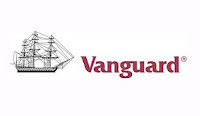Vanguard Funds is the second-largest provider of ETFs, with over $479 billion in Assets Under Management (AUM)
as of May 18, 2015. It is second only to the iShares family of funds from BlackRock, Inc.
So, Vanguard Funds is not the largest provider of ETFs. Neither was Vanguard the first provider of an ETF.
According to the Wall Street Journal, that honor goes to State Street Global Advisors, with the January 22, 1993 launch of the
SPDR Fund (Ticker Symbol:
SPY), which tracks the Standard & Poors 500 index. Vanguard's first ETF, the
Total Stock Market ETF (Ticker Symbol:
VTI), was
established in 2001.
Despite the fact that Vanguard is neither the first, nor currently the largest, provider of ETFs, in many ways it could be said that Vanguard is largely responsible for their development.
Profile: John C. Bogle
The story of Vanguard really begins with John C. Bogle, whose pioneering efforts are largely responsible for the development of the index fund and the acceptance of passive investing.
After graduating magna cum laude from Princeton University in 1951, Bogle worked for Wellington Management from 1951 - 1974, at which time he founded The Vanguard Group.
Bogle's undergraduate thesis at Princeton can be viewed as laying the basis for his life's work. His research revealed that approximately three-quarters of all
mutual funds did not consistently beat the returns of the Standard & Poors 500 index. At that time, mutual funds promoted
active investing; the idea that a clever manager, through careful research and stock selection, could beat the index, thereby providing value to investors. Of course, this was beneficial to the industry, as it provided a reason for charging fees for such active management. Bogle's thesis argued that, while it was possible for such active managers to pick specific stocks that beat the index, the cost for their management fees as well as trading fees associated with buying and selling such stocks negated any such advantages, particularly over a longer-term time horizon.
In summary, Bogle preached the advantages of the following:
- Passive investing as a superior long-term approach to active investing
- The importance of minimizing investment-related costs and expenses
- The benefits of investing with a long-term time horizon
- Reliance on a rational approach and the removal of emotion from the investing process
- That all of the above would contribute to the success of the individual investor
Vanguard
Vanguard was launched in 1975, and was the first investment firm to be owned, not by a management company, but by its member funds and therefore operated solely in the interests of its funds' shareholders. Here is an excerpt from
its website:
Founder John C. Bogle structured Vanguard for just one purpose—to build wealth for its clients...and only for its clients. The crucial difference from other fund companies: Vanguard would redirect net profits from economies of scale to fund shareholders in the form of lower costs. The arrangement was similar to that of a credit union or a traditional mutual insurance company. Sales commissions were eliminated, and operating expenses were kept low.
Vanguard was initially formed to run the
Wellington Fund, a balanced investment fund that dated all the way back to December 27, 1928. During his time at Wellington, Bogle was appointed to administer this fund. In his own
biographical comments, Bogle outlines his own early missteps, leading to his ultimately being fired as manager of the fund while at Wellington and how this led to his decision to start Vanguard.
In 1976, Vanguard launched the very first index mutual fund, the
Vanguard 500 Index Fund. One year later, in 1977, it eliminated all sales loads on its mutual funds. In 1982, it began providing funds and services for 401(k) plans. In 1986, it launched the first bond index fund for individual investors. Finally, as mentioned at the outset of this article, Vanguard launched its first ETF in 2001.
Today, while many other companies have joined the ETF space, Vanguard remains a formidable competitor. The following is a screen I ran using my personal Fidelity investment account. I filtered to find ETFs with the lowest expense ratios in the industry and at least $10 billion in AUM, which helps to ensure tremendous liquidity. Here is that list:
 |
| Click to Enlarge |
I took the liberty of highlighting some of my personal favorites in yellow. You will quickly note the
Vanguard Total Stock Market and
Vanguard Total Bond Market offerings, funds that in and of themselves combine incredibly broad diversity with rock-bottom expense ratios. What I find even more attractive is that they also offer specialized, or targeted, ETFs in several categories (High-dividend payers, foreign stocks, REITs) with that same low-cost discipline,
Clearly, any investor interested in building a low-cost, diversified portfolio ought to take a serious look at Vanguard's offerings.
Further Reading





Comments
Post a Comment